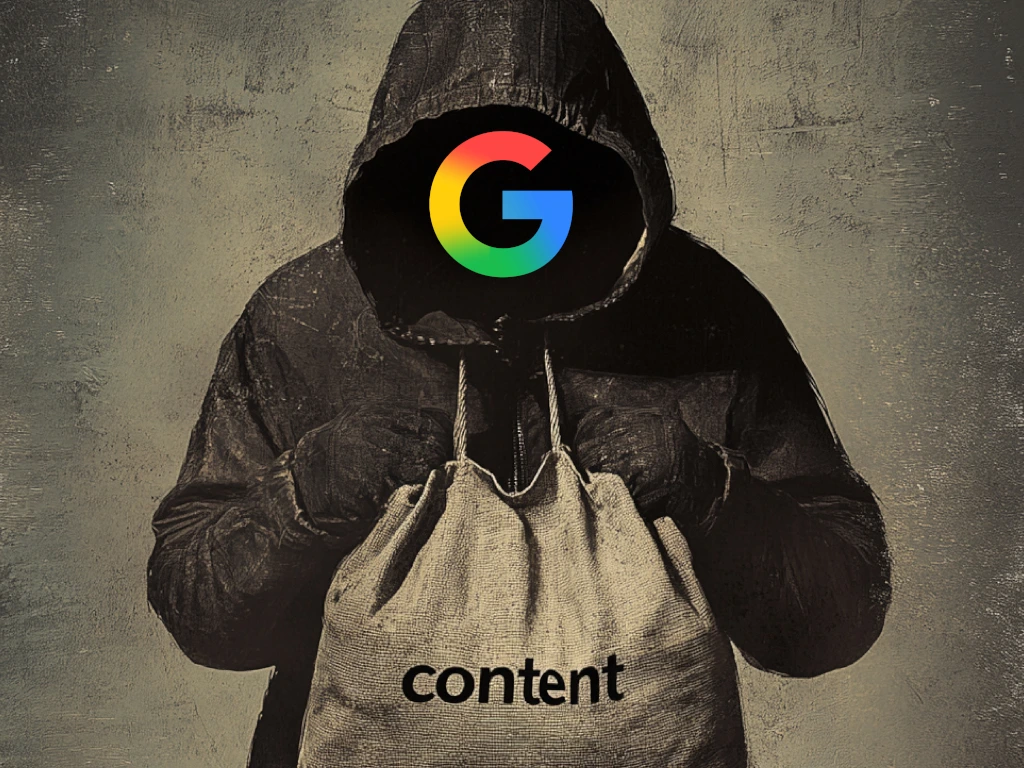Let’s cut to the chase: Google is eating its own ecosystem. For those of us who’ve spent years building high-quality content, optimizing every header, link, image, and phrase for humans and bots alike, the rise of AI Overviews feels like a slap in the face.
Thanks to Gemini and Google’s generative AI advancements, search results are no longer just a list of organic links fighting for click-throughs. They’ve become AI-generated “answers” scraped from the web—including our content—and served directly to users. No clicks. No credit. No cookie.
As SEO marketers, we have every reason to be furious. But we also need to be smart about how we fight back.
What Are AI Overviews, and Why Should We Care?
AI Overviews are Google’s new shiny feature, rolling out across search results in the U.S. and other countries. When you type in a query, instead of just the classic 10 blue links, you’re now likely to see a big, shiny AI-generated summary right at the top.
This summary is powered by Gemini, Google’s large language model. It pulls “helpful information” from multiple sources, synthesizes it into a clean paragraph, and places it ahead of everything else.
Sounds great for users, right?
Sure—if you ignore the fact that those sources are often our blog posts, articles, guides, and product pages. We did the work, and now Google is reaping the rewards while sending us less and less traffic.
This Isn’t Evolution. It’s Expropriation.
This isn’t just a shift in UX. It’s a complete redistribution of visibility—away from content creators and toward Google’s own products.
Here’s what that looks like in practice:
- Fewer clicks, more skims. People get their answers without ever visiting your site. You might rank #1… and still get nothing.
- Authority is redefined. The algorithm now rewards aggregated authority across the web. But who gets the reward? Not the content creators. Just Google.
- Citation is vague and inconsistent. In many AI Overviews, the sources used aren’t even linked or named. When they are, they’re tiny, barely visible mentions.
To put it plainly: Google is taking our work to train and feed their AI, using it to replace us in the SERPs—and giving us nothing in return.
The New SEO: Survive or Be Scraped
Despite the frustration, we can’t just throw in the towel. AI Overviews aren’t going away. So let’s talk tactics.
Here’s how we adapt:
- Create content with real depth. Superficial posts are done. We need evergreen, expertise-driven content that showcases firsthand experience and authority. (Ironically, the stuff we’ve always been told to write.)
- Build reputation and branding. If people can’t click to your site, they better remember your name. Brand recognition matters more than ever.
- Embrace multichannel presence. If Google won’t reward your content, build your own ecosystem: email lists, YouTube, TikTok, podcasts, and yes—maybe even start thinking about optimizing for ChatGPT-style interfaces.
- Track visibility beyond traffic. If AI Overviews cite your brand, screenshot it, document it, use it in decks. Push clients and internal teams to measure mentions, not just sessions.
But let’s be real: all of this still leaves a bitter taste. Because we’re not just looking for ways to survive—we’re looking for fairness.
Hey Google, Let’s Talk
You want quality content? Thought leadership? Trustworthy information? We built that. We optimized it. We earned our rankings.
So here’s what we, the SEO community, propose:
- Give credit where it’s due. Every AI Overview should clearly cite and link back to every content source used. Prominently. Not just a gray “sources” toggle.
- Share data transparently. Tell us when our content is being used in AI Overviews. Give us metrics. Let us see how it’s performing—even if it’s not driving clicks.
- Offer opt-outs or monetization. If you’re going to use our work to generate AI responses, offer content creators a choice: opt out, or monetize the exposure in some way. We need a new model—just like YouTube shares ad revenue, so should you.
- Prioritize original creators. Don’t just scrape from copycat listicles and regurgitated blog spam. Reward sites that publish firsthand experience, original research, and expert insights.
- Collaborate with the SEO community. The same people who made Google useful are still here. Don’t burn the bridge. Build on it.
A Glimpse at the Future: What About ChatGPT and Others?
Ironically, as Google scrapes our content to serve answers, ChatGPT is becoming a viable alternative to Google Search for many users.
While it’s not there yet in terms of real-time results or citations, OpenAI’s tools are growing fast. And as plugins and browsing features evolve, we marketers will look for ways to optimize for those environments—especially if they start offering better attribution and reward systems.
So yes, Google may be changing the game. But other players are stepping onto the field—and they’re not starting with a monopoly.
Final Thoughts: We’re Not Just Traffic Numbers
To the engineers and product managers at Google: we get it. You want faster answers, better UX, fewer clicks, and more revenue.
But don’t forget who helped build the web you’re scraping.
SEO isn’t dead. It’s evolving—sometimes painfully. But if Google wants to continue to be the place where users come for information, it has to work with, not against, the people creating that information.
We’re not asking for charity. We’re asking for reciprocity.
So go ahead, roll out your AI Overviews. But give us credit, give us tools, and give us back a little of the visibility we’ve earned.
Because without us, your AI wouldn’t have anything to say.
By Santiago Tobon.







